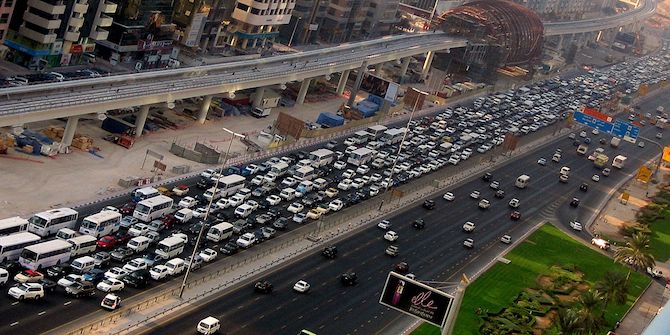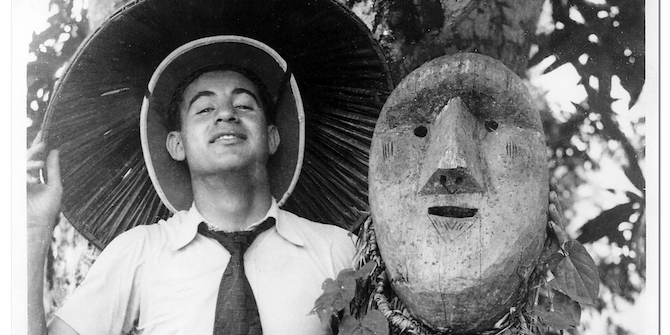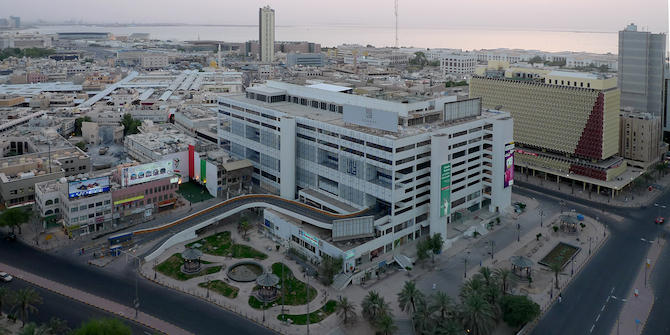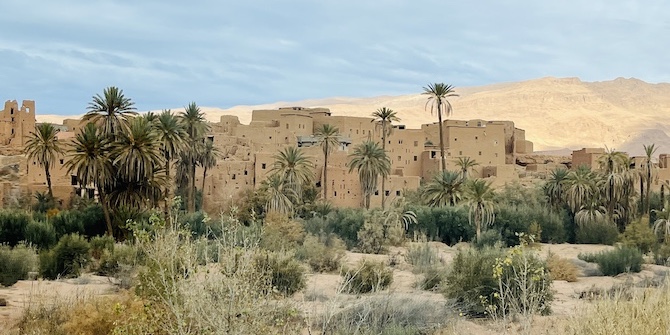by Viacheslav Morozov

This short piece identifies prominent features of the worldview that shapes Russian foreign policy, with particular emphasis on its application to the Middle East.
The first key point is that global politics, seen from Moscow, is dominated by the West and primarily by the United States. Other actors play a role in their particular regions, but the general perception is that the US is the only power capable of affecting global developments and presenting a material threat to Russia’s sovereignty. This reflects the general Eurocentric disposition of Russian elites who, since the times of Peter I, have strongly identified with Europe and shared its image through the Enlightenment, as the only civilised part of the world. This identification has been problematic: Russia’s lack of recognition as a European country has often produced bitter tensions with other European states. Even in times of political confrontation, however, Russia does not abandon its claim to ‘Europeanness’. Instead, as Iver Neuman has famously argued, it presents itself as the ‘true Europe’, which defends ‘genuine’ European, Christian values, against an alleged moral decay happening across the continent. Today’s crisis in Russia–West relations should be contextualised as a continuation of this pattern.
The predominance of such Eurocentrism explains why, even as Russia believes the West is in decline, it continues to focus on the United States and NATO as a major national security challenge. The logic here is that while China’s rise to power on the global stage is arguably peaceful, the West, led by the United States, desperately tries to retain its dominance on the international stage. To that end, it does not stop short of interfering in the internal affairs of sovereign nations and military intervention, such as in Iraq in 2003 or in Syria since 2014. According to the Kremlin, the West uses the rhetoric of democracy and human rights to intervene in other countries’ internal affairs, while the final aim of various ‘colour revolutions’ is to keep non-Western nations under US control. Russia, seen as the spiritual leader of the non-Western world and the only nuclear superpower comparable to the US, is the final target in this battle. It must protect its sovereignty at all costs – not only for its own sake but as part of a global mission to prevent the unilateral dominance of the West in world affairs.
In Russian discourse, the current global system is presented in a paradoxical way. It is viewed as unipolar insofar as the West is domineering and aggressive in its attempts to remain in the lead. Yet, the global system is also viewed as multipolar due to the emergence of other prospective superpowers. Indeed, since the late 2000s, Russia’s foreign policy doctrine presents multipolarity as a fact and no longer a potentiality. However, it also seems that Russia remains uniquely positioned as the main serious challenger to Western dominance, which maintains an element of bipolarity in the picture as well.
Last but not least, the Kremlin’s worldview is conspirological. It does not believe in grassroots politics, civic activism or any other autonomous action. People are not capable of making sacrifice: if they spend their time defending a cause, they must be getting paid. There is always someone who is pulling the strings; behind any movement, there is always geopolitics, or economic interests, or both.
With all this in mind, it is evident that the Arab Spring was a key event in motivating Moscow to more actively engage in the Middle East. From the Kremlin’s perspective, the protest movements across the region were due to Washington’s attempts to achieve regime change in order to tilt the geopolitical balance in favour of the US. The Arab Spring was perceived as a link in a chain of events that started with the NATO campaign against Federal Yugoslavia in 1999, continuing with the US intervention in Iraq in 2003, the series of ‘colour revolutions’ in the post-Soviet space, as well as the protest movement in Russia in 2011–2012.
Sovereignty, in this view, was under threat everywhere, and Russia embarked on a diplomatic mission to support existing anti-US regimes all over the world, with some involvement even in countries as remote as Venezuela. Another revolution in Ukraine in 2013–2014 came as a major challenge to some of the most basic principles of Russia’s security doctrine: essentially, it was perceived as opening the way to Ukraine’s NATO membership and thus as bringing NATO’s borders within a few hundred kilometres from Moscow. The resulting Russian intervention in Ukraine destroyed the last remnants of trust between Russia and the West, thus opening the way to a more assertive strategy in other key theatres. The 2015 intervention in Syria was a logical follow-up in that respect.
The relative success of this strategy was to a significant extent due to the fact that starting from the early 1990s, Moscow has gradually established working relationships, based on mutual accommodation rather than any commonality of values and goals, with all major powers in the region. Russia does not really have allies in the Middle East: the Syrian regime is best described as a client, whereas Iran and Turkey have agendas of their own which at times directly oppose Russia’s. However, the latter can cooperate with nearly every state on a case-by-case basis. There is competition and sometimes open confrontation, but as the dust settles, normal working relations are able to resume.
This rollercoaster pattern is particularly typical of Russian-Turkish relations, which have seen crises and tensions caused by the downing of a Russian fighter jet in 2015, the assassination of the Russian Ambassador in Ankara in 2016, Turkey’s intervention in the Armenian–Azerbaijani war over Nagorno-Karabakh in 2020, amongst other instances. Russia’s relations with Iran are much less volatile. There is definitely rivalry between the two, when it comes to Iran’s attempts to maintain its influence in Armenia, Azerbaijan, Syria and elsewhere across the region. There are also apprehensions about Iran’s nuclear programme and its potential full return to the global oil market. These concerns, however, do not prevent the two countries from cooperating in a number of areas, not least on Syria (especially in what can be broadly labelled as the Astana format), on nuclear energy, and so on.
In other words, the often-competitive relationships with Iran, Turkey, Saudi Arabia, Israel and other regional states are not part of the somewhat Manichean image that defines Russia’s relations with the West. Among the regional powers there are allies and adversaries of the US, and it is not unusual for the relations between regional powers to turn openly hostile. Regardless of these differences, Moscow perceives these regimes as rational, pragmatic players pursuing their legitimate interests while respecting the sovereignty of other states. It would seem that Russia’s actions in the Middle East are perceived largely along the same lines by the foreign policy elites in the region. This is perhaps the most fundamental factor ensuring some basic level of trust between governments in the region and Moscow.
This is part of a series on the challenges and opportunities facing the Russian-Iranian partnership in the Middle East, based on contributions from participants in a closed LSE workshop in April 2021. Read the introduction here, and see the other pieces below.
In this series:
- The Russian-Iranian Partnership in the Middle East: Challenges and Opportunities by Ghoncheh Tazmini
- Russia’s Middle East Policy and View of the Post-Cold War Global Order by Viacheslav Morozov
- Drivers of Russia’s Middle East Policy by Diana Galeeva
- Russia and Iran’s Relations in Iraq by Arman Mahmoudian
- Russia and Iran in Syria: Military Allies or Competitive Partners? by Samuel Ramani
- The Post-Blockade Gulf: Prospects for Relations with Iran? The Russian Role by Courtney Freer
- Russia’s Role in Brokering a Comprehensive Agreement between the United States and Iran by Hamidreza Azizi
- Russia and the Issue of a New Security Architecture for the Persian Gulf by Nikolay Kozhanov







2 Comments